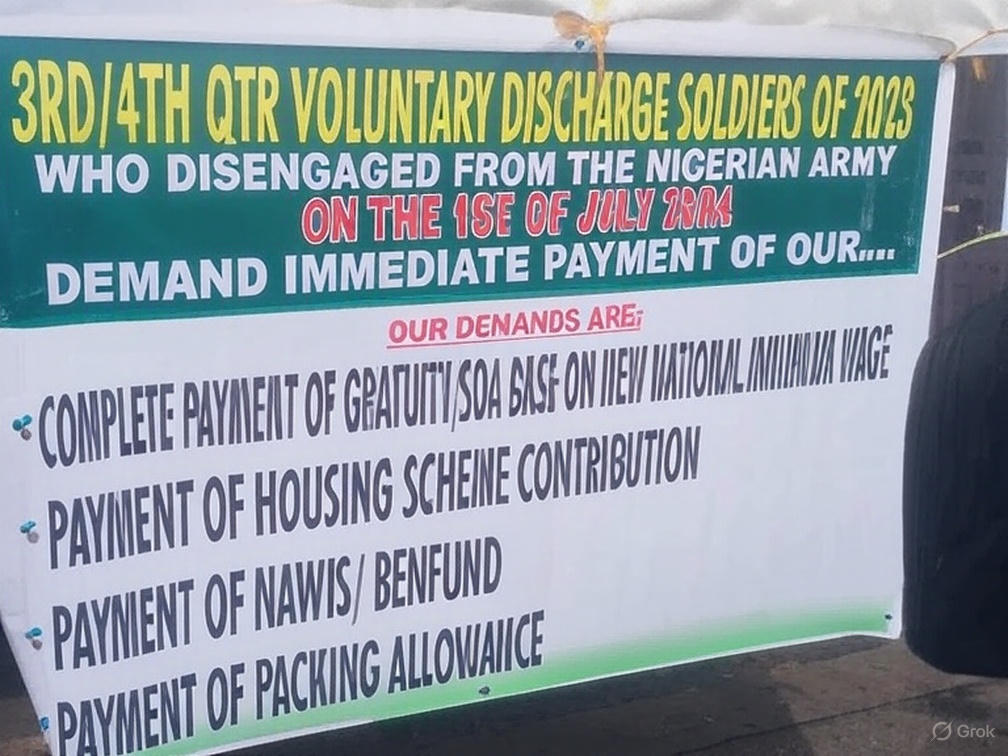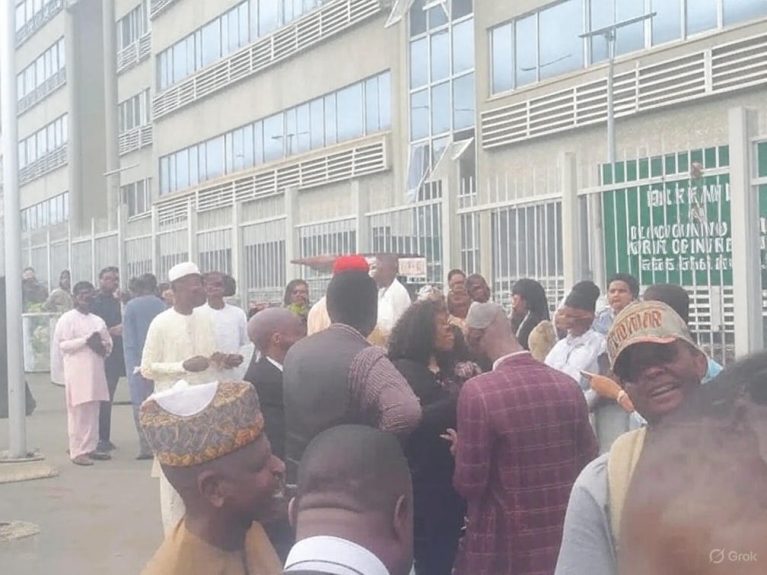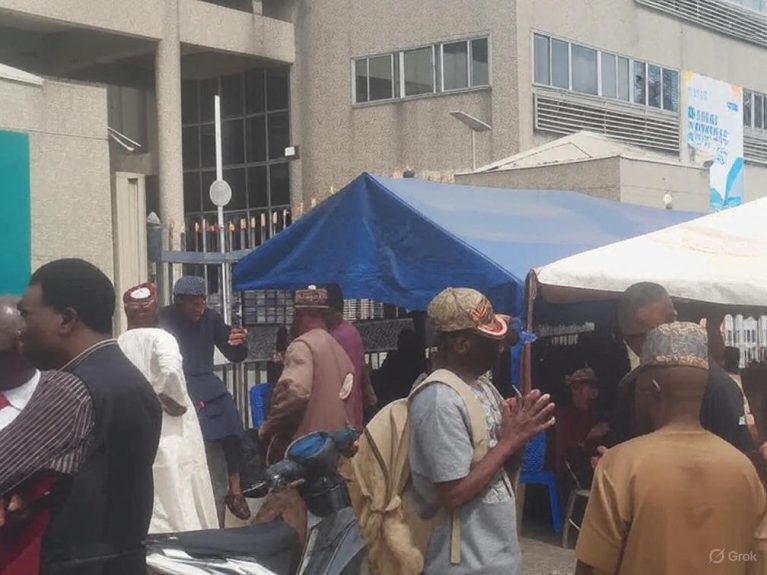
Daniel Otera
A year after they left the Nigerian Army, a group of retired soldiers showed up quietly outside the Ministry of Finance in Abuja not with chants or threats, just placards and silence.
They weren’t asking for handouts. They came to ask for what they say is rightfully theirs.
The former personnel, who officially retired on 1 July 2024, say they’ve received none of the key entitlements due to them. These include their gratuity, packing allowance, payouts from the Nigerian Army Welfare Insurance Scheme (NAWIS), and the Security Debts Allowance (SDA), which remains unpaid even after the government’s latest minimum wage adjustments.
“We have fulfilled our part by serving this country faithfully. Now, it is the government’s duty to honour its promise and pay what is due to us,” one retiree told reporters on Monday.
The gathering was calm, but the message was sharp, frustration is growing, and trust is thinning.

This isn’t the first time military veterans have brought their demands to government offices. In January 2021, hundreds of retired soldiers gathered in Abuja to protest two years of unpaid minimum wage arrears. They also demanded to be included in the Military Health Insurance Scheme. A year later, another group blocked the gates of the Ministry of Defence over similar complaints.
The message hasn’t changed. Veterans say they served the country, followed due process, and deserve their benefits without begging.
The Military Pensions Board has previously blamed delays on what it calls “administrative bottlenecks”, but that line is wearing thin. After multiple protests, court cases, and presidential directives, many say there are no more excuses.
Nigeria’s defence budget has continued to climb. According to BudgIT’s 2025 “Security and Defence Budget Breakdown”, the total allocation stands at ₦6.57 trillion, with a substantial ₦4.07 trillion of that designated for personnel costs—which includes salaries, pensions, allowances, and benefits.
Yet, retired soldiers who officially exited service in July 2024 report having received none of the key entitlements owed to them. Veterans insist the required paperwork was completed as far back as October 2023. With the funds already budgeted, they ask a simple question: where is the money?
Attempts to get a formal response from finance officials on Monday failed. No representative came out to address the retirees, who later dispersed peacefully.
Delayed payment of military entitlements is more than an administrative lapse. Several studies have shown that neglecting the welfare of retired personnel has ripple effects on morale among those still in uniform.

A recent paper published in the International Journal of Research Publication and Reviews found a clear link between welfare provisions and morale within the Nigerian Army. According to the study, when welfare systems fail, confidence in leadership drops, and trust in the institution weakens both among retirees and serving officers.
Separately, a 2022 study on the consequences of delayed pensions in Nigeria revealed that prolonged wait times for gratuity and retirement benefits often lead to serious hardship. Retirees face financial insecurity, declining health, and diminished social standing, which ultimately breeds mistrust in public institutions meant to protect their dignity after service.
